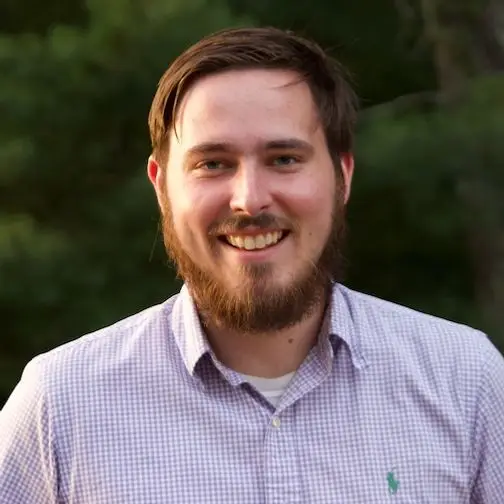Why AI Makes Critical Thinking an Absolute Necessity for Young Adults

The changes just keep coming. And they keep coming faster and faster.
I’m talking about changes in the artificial intelligence world, which is growing to include far more than super geeky software engineers and robotics enthusiasts.
Artificial intelligence (AI for short) is becoming mainstream with the launch of new programs like ChatGPT.
In fact, programs like ChatGPT and its counterparts are becoming so mainstream that they seem poised to disrupt the way we use the internet completely.
We’ve said it before at Unbound (and we’ll keep saying it): education should prepare students for the real world as it really is. That means that any high school (or post-high school) education especially that ignores the impact of AI is failing to accomplish its purpose.
In this post, we want to think specifically about some principles that should direct our education when it comes to AI.
The future of education in your inbox.
Get productivity tips, commentary, and Unbound updates sent to you!
Principles for Engaging with AI
This is something we’re discussing weekly, if not daily, as an Unbound team. This has so much impact on the present and the future. We recognize the incredible need to think through how we approach this topic as human beings.
After all, we educate people, not machines, in high school. High schoolers are people with souls and should be educated as such.
As we seek principles for our approach to AI as it changes our world, critical thinking and “real” knowledge must be foremost among those principles.
One striking element of this topic is the blurring of the lines between reality and “fantasy”. It is going to become harder and harder in the coming days to discern real from fake on the internet. This is a big deal.
There are two levels of concern here.
Hallucinations
First, despite its advanced abilities, AI is still very much in development. It’s still unreliable in some cases.
Ever heard of AI hallucinations? These occur when an AI model, like ChatGPT for instance, confidently makes up a false answer to a question and passes it off as true. In experimenting with ChatGPT I’ve experienced these “hallucinations” myself personally.
The ability to verify what an AI model is telling you is absolutely critical. I probably don’t have to tell you that we’re already in the midst of a culture where finding the truth about an event or topic is getting harder or harder. The internet in general has made the task of verifying reality more difficult because it’s become easier to make the lies more believable and easily spreadable.
That leads us to the second, arguably more serious, concern.
Fantasy World
While “hallucinations” are “bugs” that come with the territory of developing technology, the greater concern is how AI will be used intentionally to blur the line between reality and fantasy. Already, images have been circulating online that were generated by AI. We’re at the point now where you can get an AI to generate just about any image you can imagine and articulate.
Of course, like much technology, this is an opportunity for greater creativity but it’s accompanied by great risk and danger.
Designers can now work more efficiently and flex their creativity. But here’s the downside: photo-realistic images generated by AI will be harder to distinguish from real images on the internet.
This has a number of implications for a variety of issues.
For example, a completely fabricated news story can be spread with photo “evidence”. Because of the internet’s connectedness, fake news can spread like wildfire. When our news sources and the internet in general are so inundated with fake news, trust will be hard to come by.
Furthermore, with the ability to create a fantasy world at the fingertips of the average person, more and more people will be trapped in a virtual existence. There is already a critical loss of community in our culture due to virtual alternatives ranging from the Metaverse to internet pornography.
This transition to a “virtual world” is concerning because humans are not machines. They cannot live long-term plugged into a virtual world. We were made for the real world. We were made to master technology and use it God’s glory, not be mastered by it.
Critical Thinking
This leads us to our principle of critical thinking.
Young people (and all people in general) will absolutely need to develop the ability to think critically. We can’t blindly trust everything we’re told or even everything we see on the internet. Fabrication and falsification are getting easier and easier. They’re also becoming more mainstream through access to AI image generation.
Now, perhaps more than ever, a questions-based paradigm is absolutely essential. We can’t simply accept answers without verification. We need to be question-askers who are thinking critically and wisely about the truth claims we encounter, especially on the internet.
That said, we also need our young adults to work on building up a body of knowledge that is trustworthy. They need to have a foundation of reality so that when they face fantasy, they are alert.
This may look like an emphasis on “old” knowledge learned through books and natural observation of the real “in-person” world.
As a Christian, I believe that this foundation should be first and foremost the word of God as revealed in the Bible. Beyond this foundation we can add knowledge from books and in-person instruction, experimentation, and observation.
Conclusion
As AI makes the world a place with more potential for false information and virtual fantasies, training our students to approach the digital world with healthy critical thinking is absolutely necessary.
Building a foundation “offline” is a great step towards developing critical thinking in our young adults. We’ll examine the issue of community in a digital/AI world in the future but that is also important. Verifying what we find on the internet is about to get harder and yet simultaneously more essential.
Is your student ready for these changes?
Ascend is Unbound’s post-high school option for young adults who want to build real world skills, real world experiences, and real community. Ascend trains leaders and critical thinkers who prepare for life as it really is. Schedule a free consultation to learn more about the program and to see if your student is eligible.



